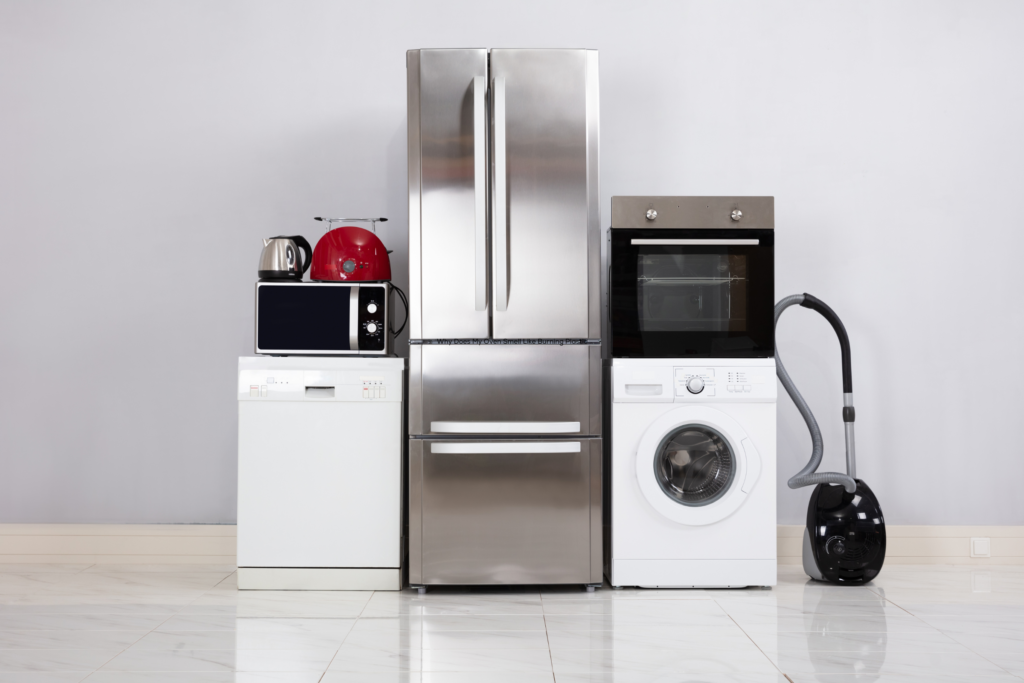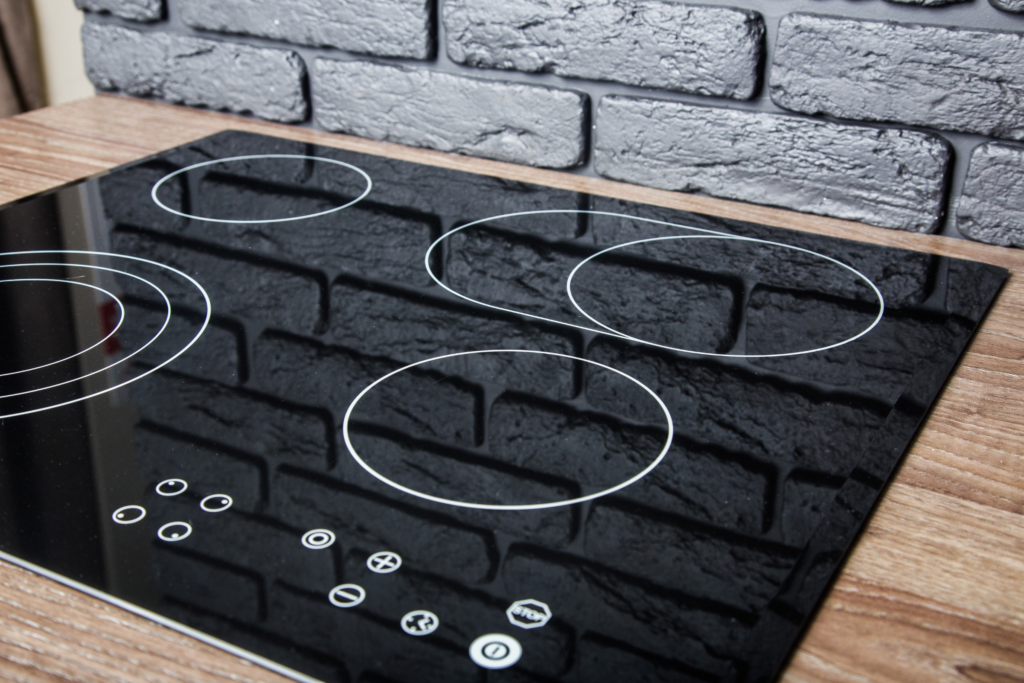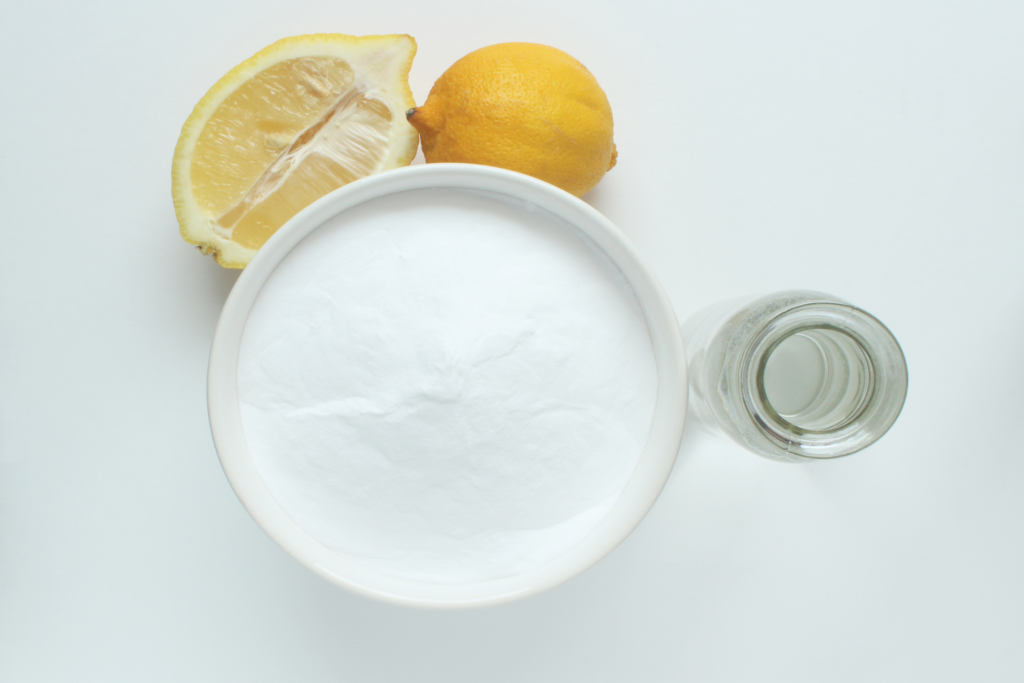Why Does My Oven Smell Like Burning Plastic? (Get Rid of New Oven Odors)
If you’ve just brought home and installed a brand new oven, you might have been surprised by the stench the first time you turned it on to use it. Most new ovens will produce a distinctive smell similar to burning plastic, electrical burning, or chemicals when it heats up for the first time. You might even see smoke or fumes.
New ovens often smell like burning plastic or chemicals the first time you use them because the heat causes machine oils, grease, or other residue left over from the production process to vaporize and flow out of the oven. Although this process is normal, it is best to follow a basic process to completely remove this odor before you use your oven to cook food.
Fortunately, it is fairly quick and easy to get rid of the burning plastic smell and fumes in a new oven. In this article, we’ll take a closer look at what causes these appliance smells in the first place, along with my practical process and tips for getting your new oven up and running!
What Causes My Oven to Smell Like Burning Plastic?
There are three main reasons why an oven will smell like plastic the first time you turn it on:
- Leftover packaging materials
- Insulation
- Protective coating on the internal parts

Leftover packaging materials
Speaking from personal experience, it is surprisingly easy to miss some of the packaging materials when you are unboxing or unpacking your oven for the first time. Like most home appliances, there will be stuff inside your oven (like instructions from the manufacturer on your particular model) and stuff wrapped around it.
In addition to the large box and styrofoam packing, be sure to check for:
- Plastic wrapping on the top of the cooking range, the rubber around the oven door, the underneath on the bottom of the oven and on the controls
- Styrofoam packaging inside the oven itself
- Bags of parts, inserts, or accessories inside the oven
Insulation
Since ovens are meant to reach high temperatures and hold them efficiently, there is a pretty hefty amount of insulation built into the oven.
Depending on the materials used, the insulation might produce a slight odor the first few times the oven is used.
Protective coating on the internal parts
Another reason new ovens have a distinct smell is the protective coating of oil that’s used during the manufacturing process. This coating can cause a smell similar to burning plastic if it’s not properly burned off.
Typically, you’ll find this protective coating on the inside of the oven, the shelves, and the heating element.
Don’t worry – we’re about to cover that process!
How to get the burning plastic smell out of a new oven
Now, let’s get into the action plan!
Here are the steps to follow:
- Remove extra materials
- Mix up a simple cleaning solution
- Use extreme heat to burn-off odor-causing residue
1. Remove Extra Materials
Before using my new oven, I made sure to remove all the extra materials that came with it. This includes taking off any plastic packaging, zip ties, and any other protective materials that were placed on the oven racks and accessories during shipment.
I also checked around the oven cavity to make sure there were no leftover materials that could cause unwanted damage, odors, or pose a health and fire safety hazard.

2. Mix up a simple cleaning solution
This step can be optional, but I recommend adding it so that you only have to go through this process once.
Basically, you’re going to mix up a cleaning solution that will heat and vaporize inside the oven, helping to speed up the cleaning process.
Here are the two best ways to do it:
Lemons
- Cut a couple of lemons into slices.
- Place the lemon slices in an oven-safe bowl or dish.
- Fill the bowl with water, making sure the lemon slices are submerged in the container.
Vinegar
Another natural option I’d use for odor removal is apple cider vinegar or white vinegar. Here’s the process I’d follow:
- Mix equal parts of vinegar and water in an oven-safe bowl or dish.
- Place the bowl with the vinegar solution inside the oven
Afterward, I’d wipe the oven’s interior with a soft cloth soaked in warm soapy water, just to ensure there’s no lingering odor. The vinegar cleaner scent might be noticeable during the process, but it will dissipate once the oven cools down.
Overall, both lemon juice and vinegar are effective natural methods for removing new oven smell. Remember to keep the ventilation fan on and open nearby windows during the odor removal process for the best results.

3. Use extreme heat to burn-off odor-causing residue
This process involves setting the oven to high heat, between 400 to 550 degrees Fahrenheit (204 to 288 degrees Celsius), and letting it run for about 30 minutes to an hour. I made sure to have proper ventilation in my kitchen by turning on the exhaust fan and opening nearby windows.
With the cleaning solution inside the oven, the high temps will cause the solution to boil and vaporize, hit all of the hard-to-reach places.
Once the burn-off is complete, let the oven cool down completely before moving on to the next step.
4. Final wipe down
Once the oven is cool, I like to take a damp cloth and just wipe down the inside of the oven just to make sure that there is no more residue remaining.
At this point, you shouldn’t notice any kind of a burning plastic smell or other chemical smell when you turn your own on to cook!
Remember:
- Use high heat (400-550°F or 204-288°C) for the initial burn-off
- Ensure proper ventilation during the process
- Repeat burn-off cycles as necessary
- Perform a final lower heat cycle (200-250°C) and wipe down the oven interior afterward
Is it safe to cook in a brand-new oven right away?
No, it is not safe to cook in a brand-new oven right away. Before using it for the first time, it is recommended to clean the interior of the oven and perform a burn-out to eliminate any residue or foul odor that may be present – this is what creates the burning smell.
This process involves heating the oven to high temperatures, typically between 400 to 500 degrees Fahrenheit (204 to 260 degrees Celsius), for around 30 minutes to an hour. Some manufacturers may suggest a specific temperature or duration for the burn-out process, so it is best to refer to the oven’s manual for guidance.
How long should a new oven smell?
Most new oven smells do not last very long, and you may find that yours only kicks out a burnt whiff of smoke for its first heating. It is best to “test drive” the oven to make sure it functions properly and for any possible smells, which you can do without any food in the cavity.
However, if the smell persists, you can set the oven to high heat, between 400 to 550 degrees Fahrenheit (204 to 288 degrees Celsius), and let the oven run at this temperature for between 30 minutes and an hour. If the smell still persists, repeat the process one or two more times
Let Us Know How We’re Doing!
Did this expertly prepared resource answer your question?
Do you have another question about home maintenance, home improvement projects, home appliance repair, or something else?
Get more information, send in questions and keep the discussion going by contacting the I’ll Just Fix It Myself company customer service team at at 1-800-928-1490 or Email us at [email protected]
